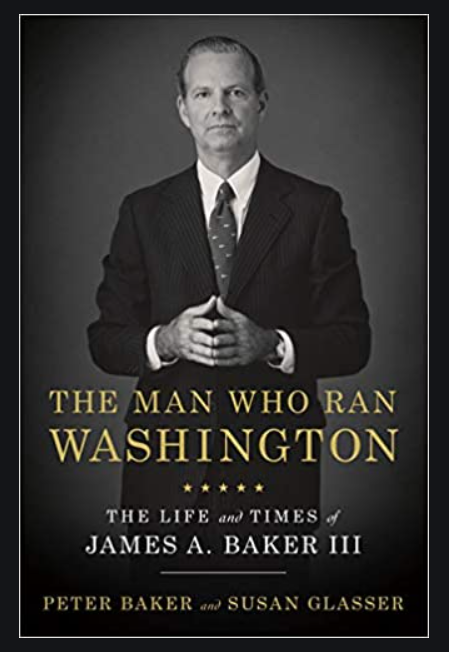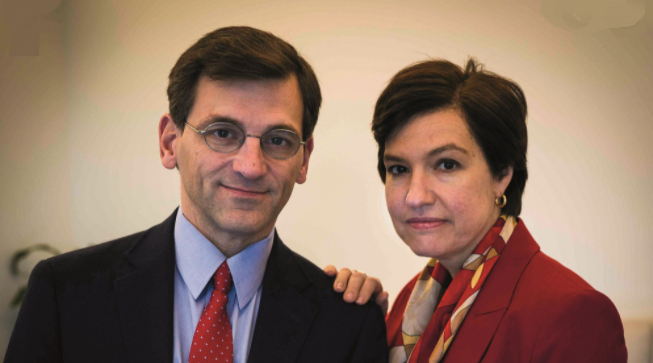
Baker itching for a new challenge beyond law enters politics


A definitive biography of legendary White House chief of staff and secretary of state James A Baker III: the man who ran Washington when Washington ran the world.
From the end of the Watergate scandal to the aftermath of the Cold War, no Republican won the presidency without his help or ran the White House without his advice. The scion of a patrician family of lawyers who put on the oil town of Texas on the map at the turn of the 20th century. His father known as the warden was a disciplinarian. After a youth largely spent carousing, including an undistinguished period in Princeton, Baker turned serious when he joined a rival law firm, married and started a family with his sweetheart, Mary Stuart. He grew up in Houston who became George H.W. Bush’s best friend (a conservative East Cost figure turned Texan oilman) on the tennis courts of the Houston Country Club, James Addison Baker III was the indispensable man for our presidents because he understood better than anyone how to make Washington work at a time when America was shaping events around the world.
The Bush-Baker relationship was a mixture of sibling rivalry and enduring loyalty. In 1988. Baker masterminded Bush’s campaign that saw the vice president win the White House, one of five presidential races Baker Managed. The Man who Ran Washington displays the portrait of a power broker who influenced America’s destiny for generations.
James Baker III had never even worked in Washington until his wife died aged 38 from cancer, a devastating family tragedy when he was thirty-nine which triggered him to enter politics as he was itching for a new challenge beyond the law. Within a few years, he was leading Gerald Ford’s campaign and would go on to manage a total of five presidential races and win a sixth for George W. Bush in a Florida recount. He ran Ronald Regan’s White House and became the most consequential secretary of state since Henry Kissinger. He negotiated with Democrats at home and Soviets abroad, rewrote the tax code, assembled the coalition that won the Gulf War, brokered the reunification of Germany, and helped bring a decades-long nuclear superpower standoff to an end. Ruthlessly partisan during campaign season, Baker governed as the avatar of pragmatism over purity and deal-making over division, a lost art in today’s fractured nation. His ability in acquisition exercise, and preservation of power in late twentieth-century America and the story of Washington and the world in the modern era – how it once worked and how it has transformed into an era of gridlock and polarization.
James Baker III, the tall Texan with impressive stare was the face of American power. In Regan and Bush Snr administration, Baker enjoyed the unofficial title of “co-president”, a ruthless political operator who deployed his deal-making skills to advance US interests while working with allies to help bring a peaceful end to the cold war.
Baker’s Hunter’s instinct for the vulnerability was precarious and the sense of political timing as he knew when to hold them and when to fold them, as Texans say about gambling, Baker understood that access to information and the president was the key to the exercise of power, and he was a master of the tactical leak, invariably accompanied by plausible deniability.
He was “the velvet hammer” in a feuding Regan White House, the architect of groundbreaking tax reform as treasury secretary, and the most consequential secretary of state since Dean Acheson. Baker’s record as a negotiator, implementer, and enforcer is unsurpassed and looks even more impressive in the current atmosphere of gridlock and hyper-partisanship.
Baker was “the archetype of a style of American politics and governance that today seems lost,” Peter writes. He favoured an approach based on a compromise over confrontation, pragmatism over ideological purity and he gets things done.
When reformist Soviet leader Mikhail Gorbachev captured the hearts and minds of Europeans ( especially Germans), leaving the new Bush team looking ponderous, Baker, who always had a top-class team of advisers, pressed for a bolder approach against the instincts of the CIA, the Pentagon, and the White House national security team.
The authors also highlight the administrations’ Carly tilt towards Helmut Kohl’s Germany at the expense of the UK, where prime minister Margaret Thatcher thought Baker was overrated and untrustworthy. Baker who never forgot a slight said Mrs. T had Ronald Regan wrapped around her little finger. He ensured Bush would not suffer similar manipulation.
Baker put his party first, but in voting for Trump he also traded tacit support for access and influence.
The Man Who Ran Washington: The Life and Times of James A Baker III by Peter Baker and Susan Glasser, Doubleday $35, 720 pages.
